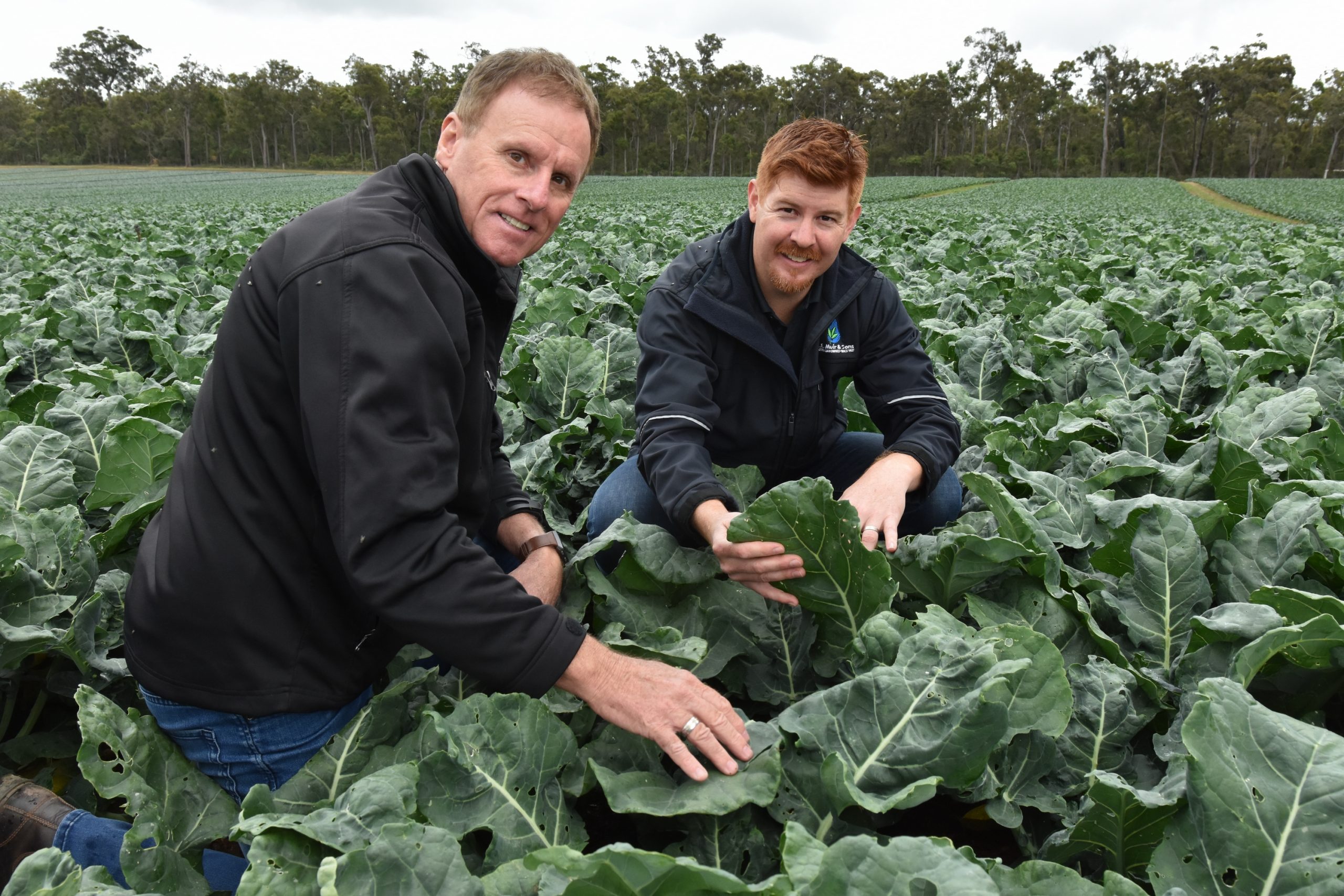
Organic Ag flourishing in the Top End with Bluey Stoldt and Mike Scott
7 September 2021
Winning the white blister battle in the west
13 September 2021It has been discovered that the use of ammonium stabilisers has a lot to offer when it comes to reducing greenhouse gas emissions in vegetable production. Vegetables Australia takes a look at trials that were conducted in Victoria, and the outcomes for vegetable growers.
Focusing on fertiliser management produced immediate results in reducing nitrous oxide (N2O), greenhouse gas emissions and improved nitrogen (N) efficiency. Trials on the east coast of Australia indicated that ammonium stabiliser treatment contributed to the reduction in denitrification and N2O emissions, reduced leaching, and improved yields.
Including an ammonium stabiliser – such as Incitec Pivot’s Entec® and eNpower™ minimises N losses, provides a more sustained N supply to the crop resulting in the potential for improved yield and quality.
Applied at the same time as conventional fertiliser, they keep N in the stable ammonium form so that it remains in the soil and is available to the crop for longer. It is an effective fertiliser option, as it slows the conversion rate of ammonium to nitrate.
Ammonium leaches very little and cannot denitrify at all. This is the opposite to nitrate, which is prone to both leaching and denitrification. A treated fertiliser potentially prevents these losses from happening.
In Victorian trials, ENTEC Nitrophoska® Special was shown to reduce the average nitrous oxide N2O emission loss by 69 to 100% compared to traditional ‘untreated’ fertilisers. These same trial results indicated that at least one fertiliser application could be dropped due to improved N efficiency.
This saves fertiliser costs, fuel costs and labour costs estimated at over $500/ha, and also indirectly also allows reduced fertiliser application rates for crop production which will further lower N2O emissions.
Not a controlled release fertiliser
Often mistaken for a slow-release fertiliser, an ammonium stabiliser is not a plastic nor polymer coated product.
Polymer coated controlled release fertilisers break down to release nutrients over time, whereas ammonium stabilisers work by inhibiting the Nitrosomonas group of soil bacteria (‘bacteriastatic’ action), which really means N is kept in the topsoil as ammonium for a longer period.
Controlled release fertilisers release small amounts of N, and the availability of it may not always be enough to meet crop demand as well as potentially leaving micro plastics residues in soil.
However, the stabilising of the ammonium means that the N is available to the crop as it requires, resulting in potential increased yield. The advantage is that all N is made available to the plant – and not restricted by the release pattern of controlled release products.
Considering ammonium stabilisers in vegetables
Crop type, soils, climate, fertilisers and irrigation methods should be considered when contemplating the use of ASs. Broccoli and potato trials (Table 1) have shown statistically significant and positive results under these considerations.
Table 1: Entec Trials – Horticultural crop, yield responses.
ENTEC or eNpower treated fertilisers are ideal for pre-plant and planting in vegetable crops.
These ammonium stabilisers are designed to improve the efficiency of applied N and minimise the potentially negative effects of uncontrolled growth flushes and nitrate spikes.
They also potentially minimise side-dress applications, where otherwise significant nitrogen losses would have occurred. It was demonstrated that one fertiliser application could be dropped in Victoria due to enhanced N use efficiency.
As with any fertiliser decision, choosing to purchase and use ENTEC- or eNpower-treated fertilisers should be based on a sound understanding of the soil nutrient status and the requirements of the crop. Arranging soil testing and analysis through the Nutrient Advantage® laboratory will help to determine an appropriate fertiliser strategy.
Find out more
Please visit the IPF Horticulture website.
®ENTEC is a registered trademark of EuroChem Agro GmbH. ™eNpower is a trademark of Incitec Pivot Limited. ®Nitrophoska is a registered trademark of EuroChem Agro GmbH. ®Nutrient Advantage is a registered trademark of Incitec Pivot Limited.
Cover image: IPF agronomist Rob Dwyer pictured inspecting a crop in Werribee South, Victoria.


